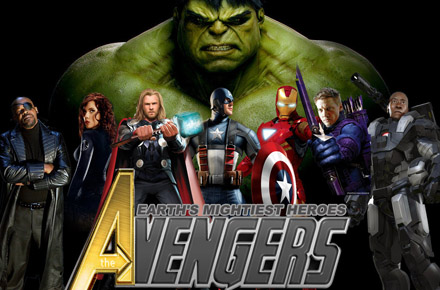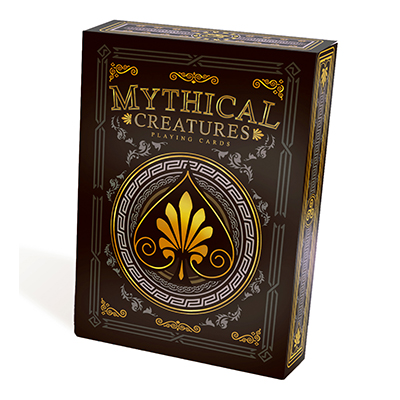The Ten Worst Cliches of Fantasy and Sci-Fi

This has never happened before

While it is true there is nothing new under the sun and that there are only seven stories in the world, some plot elements are over-used so often that the mere mention of them in a new piece of fiction is anathema. Whether you’re a budding writer, avid reader, or a film aficionado, here are ten tired, shop-worn story elements to avoid. These are in no particular order, as they are all equally cringe-worthy.
10) The orphaned hero.
Harry Potter, Richard Rahl, Batman, Luke Skywalker, and Aladdin are all orphans. There are usually two reasons lazy writers use this device: to make the reader or viewer feel sorry for the character, or to give the hero a reason to fight for vengeance. It’s tawdry.
If I dive into a novel and the hero is an orphan, unless the writing is spectacular, I cast it aside. Especially if the protagonist is also…
9) The unwilling hero.
Oh spare me! Every so often, you will run into a piece of fiction where the primary didn’t even want to be involved, but *insert stupid reason here why they must join the quest*.
Unwilling heroes have carte blanche to whine, moan, and resist their role while all the other characters insist he or she is ‘The One’ or is ‘chosen’. Who has time to suffer through this?
Unwilling heroes include: Neo, John Connor (with Eddie Furlong’s pubescent voice squealing the entire time), and Bilbo Baggins.
8) The wise old wizard.
Gandalf, Dumbledore, Merlin, the list just goes on and on. It’s played out, tiresome and trite. Inserting such a character into a story usually means that the writer needs his audience to learn right along with the newbies.
Instead of having a character read a book, attend classes, or figure things out on their own, ta-da! A mystical, magical wizard arrives to instruct them!
Sci-fi isn’t immune to this, either. The Oracle, the Q, and Yoda are all wise old wizards in various forms.
7) The untouchable, beautiful woman.
Not to be confused with a heroine, the untouchable is usually designed or enchanted to be an unobtainable piece of eye-candy for the males of the story to salivate over and rescue.
The creator of the work uses this to add sexual tension and longing to the story. If over-done, it simply makes the fiction seem more like a smarmy romance than sci-fi or fantasy.
Untouchables include: Seven of Nine, Khalan Amnell (Rahl), and Princess Leia.
6) The child genius.
What some fiction fails to realize is that the vast majority of children who are gifted are only exceptional in a narrow field such as music, language, or medicine.
Moreover, highly-intelligent children often suffer from social backwardness or are woefully behind their peers in areas in which they do not excel. When this is forgotten, a child genius is born.
Just about everyone loves him or her, and they can generally do no wrong. The author may toss in a naysayer or two to cover their tracks.
Examples include: Wesley Crusher, Hermione Granger, and Anakin Skywalker.
5) The huge friend who helps out sometimes.
Why does there always have to be some gigantic character who towers over everyone else? While it’s true not everyone has to be the same size, the huge, strong friend is over-played.
Extra-large friends include: Chewbacca, Fezzik (Princess Bride), Hagrid, and Chase (Sword of Truth).
4) Boys are always stronger than girls.
Sure, we have noted exceptions like Xena: Warrior Princess and Harry Potter (where magic is the great equalizer), but for the vast majority of stories this tired axiom plays out true.
Women are weaker, even if they are larger or better trained than the males. It’s laughable, especially when the female is of a race that is far stronger than their opposition’s race.
For example, B’Elanna Torres of Star Trek: Voyager is successfully fought off by a human male, despite her powerful half-Klingon physiology.
T’Pol, a full-blooded Vulcan, is restrained by an average human male- with one hand!
In Wizard’s First Rule, a strong, well-fed Mord-Sith (female human, vigorously trained) is overpowered by a tortured, starved, untrained, and exhausted human male.
What a joke. To utilize this ancient tool is to slap the reader or viewer directly in the face.
3) The evil factions are always ugly,
disfigured, or ‘wickedly beautiful’. The good side is always cute, pretty, or handsome. This is a blanket cliche that pops up in virtually every work of fiction. This gag is so old, it’s got whiskers.
Examples: nearly every film, book, graphic novel, or television series that is fictional in nature.
Just know that if someone is scarred, missing a limb, or even mildly unattractive, they are evil. Conversely, if they look wholesome and attractive, they are good to the core.
Bonus along the same lines: the more pounds of bouncing boobflesh a female is revealing, the more evil she is. Predictable and weak.
2) The bumbling idiot is adorable in their stupidity.
Examples include: Neelix (ST:VOY), Joxer (Xena), and JarJar Binks (StarWars). Why can’t anyone ever be hideous and dumb?
Any time there has to be a silly, funny character, fiction cliche cannon law dictates that they must be adorable in either appearance, speech, physical clumsiness, or a mixture of all three. This is lazy writing.
1) Everyone is either good or evil.
This has to be the worst cliche in all fiction, but it is worst in sci-fi and fantasy genres. No one is this one-sided by any stretch of the imagination, and making all characters in a story this way showcases a complete lack of ambition.
Authors get lazy with this, too: The Dark/The Light (The Dark is Rising) and Darken Rahl (Wizard’s First Rule) are weak. Darth Vader wears all black, the Gunslinger follows The Man in Black (The Gunslinger), and Species 8472 (ST: VOY) are all black.
Darkness versus light. Wow, did you think that up on your very own?
So there you have it, the ten most eyeroll-inducing, worn out plot devices ever used. Be on the lookout for these cliches the next time your watch or read sci-fi and fantasy. If you’re a writer, avoid them like the plague. If you’re a viewer, demand more from your media and drop the network an email calling them on their lazy writing tactics.










The weird thing is that every single character you listed in the orphan section are from some of the best stories ever told. Maybe there’s a reason some of these elements are used.